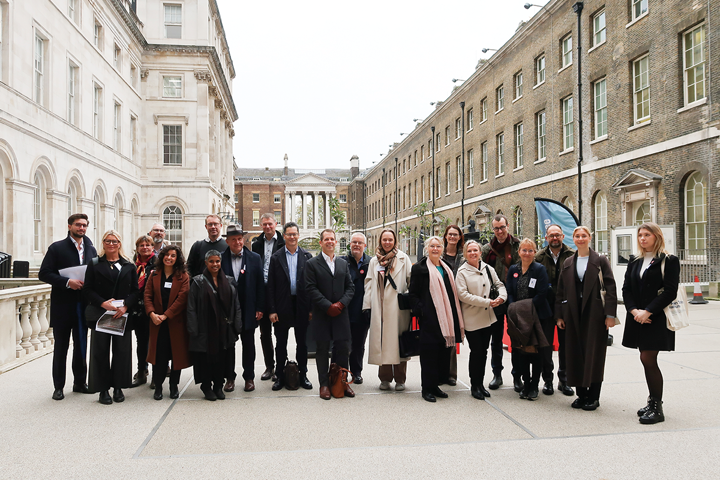
Political Preview 2024 - An opportunity for business
16 January 2024
Guest Column: Matthew Sutton, Head of UK Public Affairs, Kreab London
As we close the door on 2023 the UK is gearing up for what is likely to be yet another defining political year as we prepare for a General Election in 2024. Whilst it is still uncertain when this will take place – opinions differ on whether this will be called in the spring or next winter – the political landscape in Westminster is likely to undergo a seismic shift in the coming twelve months and business needs to prepare itself accordingly.
Following the signing of the strategic partnership agreement between the UK and Sweden in October 2023, there exists real opportunity for business to engage with both political parties who will be looking to finalise their policy positions in the coming months ahead of the election.
The potential for change
The opposition Labour Party have consistently held a healthy lead over the incumbent Conservative government over the last two years. This lead shows no signs of abating despite repeated attempts by Prime Minister Rishi Sunak to resuscitate the Government’s electoral fortunes with a series of announcements aimed at re-establishing their economic credibility following the fall of Boris Johnson and the short-lived administration of Liz Truss.
The momentum is clearly with the opposition, who seem poised to win the next election despite showing very little in the way of their plans for government. This will inevitably need to change in the early part of 2024, and the party will be expected to set out what they aim to achieve should they return to government for the first time in over a decade as part of their election manifesto.
This presents a window for opportunity for business to engage with Labour Party officials, ensuring that their voice and industry is heard. Labour leader Sir Keir Starmer has already indicated that he sees a future Labour government working closer with the European Union following a fractious relationship between the bloc and the Conservative Party following the Brexit referendum and the UK’s exit from the EU. This could extend to environmental standards, the finance sector and broader trading agreements, but the scope for closer collaboration is there to be exploited.
Down but not out
Whilst the Conservatives appear to be on the backfoot and on the precipice of electoral defeat, nothing is ever certain in politics. Despite the Government facing an increasingly uphill struggle to overturn the public’s perception of them as an administration in its final throes, they should not be counted out just yet.
Prime Minister Rishi Sunak will be counting on restoring both his political and his party’s credibility before calling an election. Key to this will be repairing public confidence in his handling of the economy. Whilst this year’s King’s Speech and Autumn Statement left many underwhelmed, there is still the prospect of a tax cutting Spring Budget in 2024, potentially a matter of weeks before a General Election.
Expectation on Chancellor Jeremy Hunt to pull the proverbial rabbit out the hat ahead of polling day with more tax cuts and higher growth, has never been higher. This is the only way to appeal to voters and win back trust in the Conservatives one more time. Far from shutting themselves off, the Government will be more willing than ever to hear from industry in a bid to save their electoral fortunes.
Outside the UK
Domestic issues aside, foreign affairs also have the capacity to play a role in how the election plays out as Rishi Sunak and Keir Starmer look to position themselves as statesman on a global scale. The ongoing conflicts in Ukraine and the Middle East have already demonstrated that these issues resonate with voters.
With the upcoming EU and US presidential elections, geopolitical issues are therefore likely to play an integral role in the political debate in 2024. Companies able to demonstrate their expertise in world affairs are likely to be ideally placed in helping define foreign corporate policy, both in the UK and abroad.
Looking to the future
The coming twelve months are therefore shaping up to be an important but politically turbulent period for businesses operating in the UK. Engaging with actors across the political spectrum in Westminster and Whitehall will become an increasingly business critical function, and companies need to be aware of how changes to the political landscape can affect their business.
With the General Election fast coming into view, political parties need new ideas and thinking, but they also require real-life experiences, evidence, and data to evaluate the feasibility and practicality of policy ideas. Organisations consequently need to prioritise their political engagement now in order to avoid increasing their risk levels and maximizing the potential benefits. Failure to do so could leave them exposed and unprepared, regardless of the outcome of the election.
Matthew Sutton, Head of UK Public Affairs, Kreab London



Join our mailing list
and keep up-to-date with the Chamber's news and events.
Read our Privacy Policy here